How much news do we watch?
- A third of Britons spend more than an hour a day consuming the news.
- Less than one-in-twenty admitted to more than three hours.
- A fifth are at the opposite extreme devoting none or almost none of their time to the news.
- The rest of us are in the middle: some news, but no more than an hour.
- Americans are less likely to hold back… The split between those clocking up sixty minutes or less as opposed to over an hour is roughly equal, whereas in the UK it’s two-to-one in favour of restraint.
- Furthermore, there’s a substantial population of Lionel Shriver-ish newsaholics – with more than one-in-ten Americans consuming over three hours of news every day.
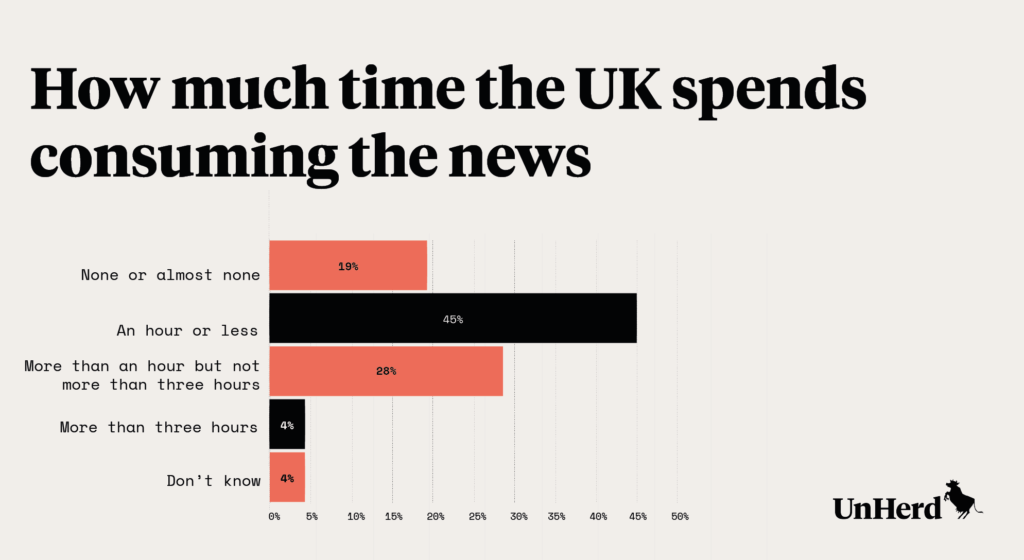
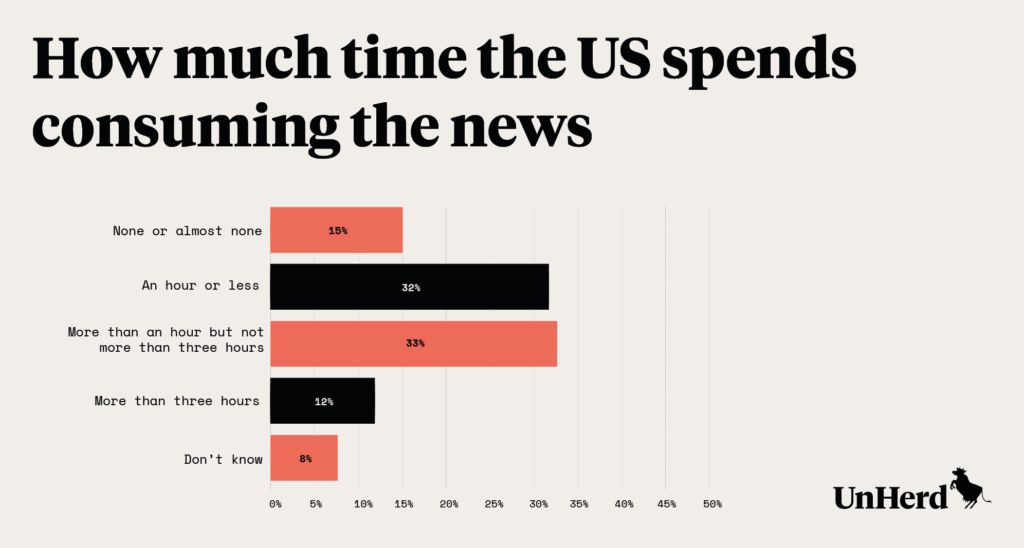
What do we think of the news industry’s qualities?
- Perhaps Americans consume more news than the British because they have a higher opinion of their news providers and journalists? Respondents in both nations were asked asked about six ‘news quality’ issues from political bias to coverage of good news….
- On each issue, US respondents had a less negative view than their UK counterparts.
- The trans-Atlantic divide was especially wide on the issue of balance. 57 per cent Americans agreed that the news media were politically biased, while 12 per cent disagreed. The corresponding British figures were 77 per cent and 2 per cent.
- The second widest divide was on whether the news media “represent the weak against the powerful”. Just 11 per cent of Britons were inclined to agree as opposed to 23 per cent of Americans.
- However, it should be emphasised that these differences don’t result from a high American opinion of the news, but rather an even lower British opinion.
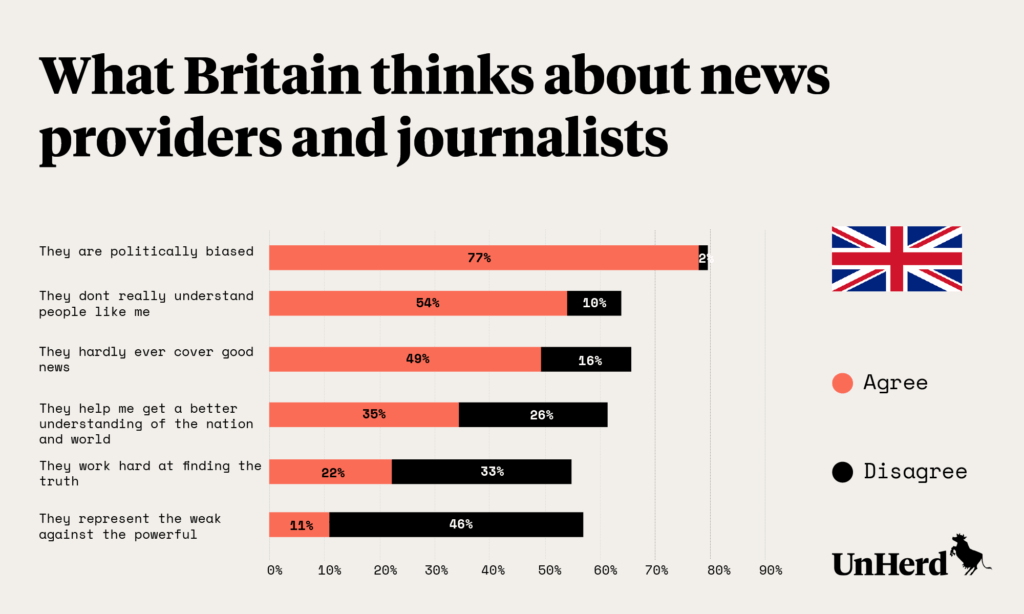
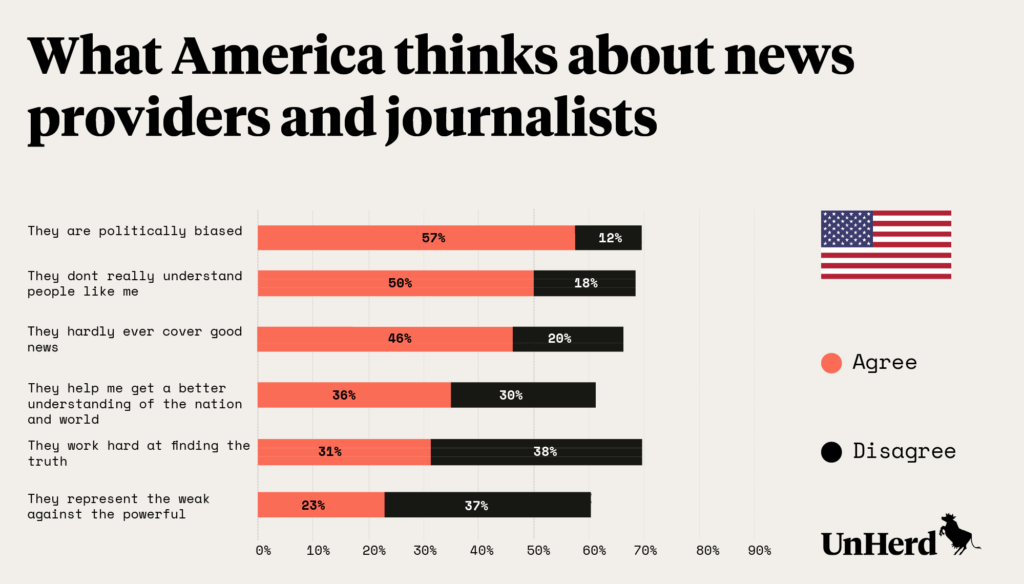
Books and history Versus 24/7 news
- We also asked respondents whether they’d be better citizens if they spent more – or less – time consuming the news. In both countries the majority of people took a neutral position, either feeling it would make no difference or answering ‘don’t know’.
- However, a substantial minority (three-in-ten Britons and four-in-ten Americans) thought that changing their exposure to the news would make them better citizens. In both countries the balance of opinion was substantially in favour of reducing rather than increasing their exposure.
- Given that perceptions of the news are even more negative in the UK than US, it’s not surprising that the British balance in favour in news reduction was more pronounced than in America.
- Allan Mallinson will be pleased that his recommendation for more history and less news has such an instinctively supportive audience.
It should be said our questions do not distinguish between different parts of the news media. For instance, we don’t know whether British respondents were mainly basing their perceptions of political bias on broadcast or print journalism. A case could made for both: UK newspapers are obviously partisan, but on the other hand there may be greater annoyance at subtle forms of bias in the supposedly neutral broadcast media. Either way, Americans are comparatively happier with the news they get, which could be why they consume more of it. That said, it is clear that millions of people in both countries are looking for a better way to stay informed.
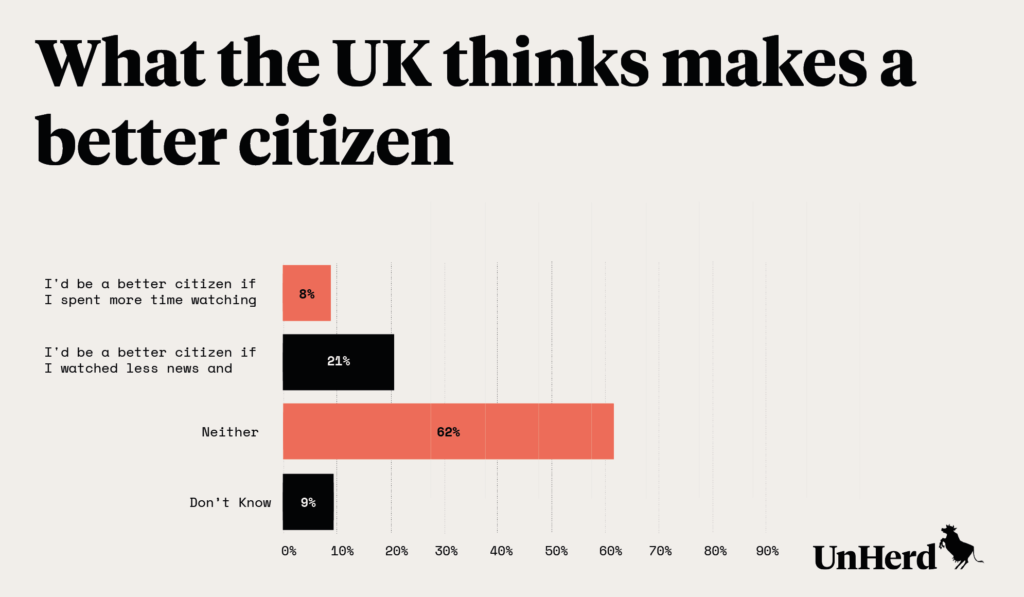
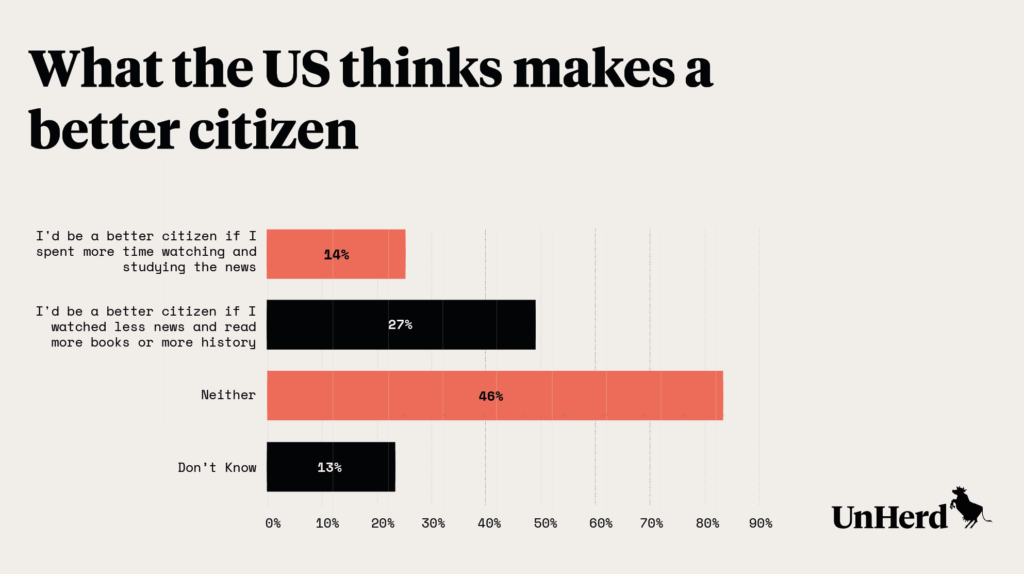

 Main Edition
Main Edition US
US FR
FR






Join the discussion
Join like minded readers that support our journalism by becoming a paid subscriber
To join the discussion in the comments, become a paid subscriber.
Join like minded readers that support our journalism, read unlimited articles and enjoy other subscriber-only benefits.
Subscribe